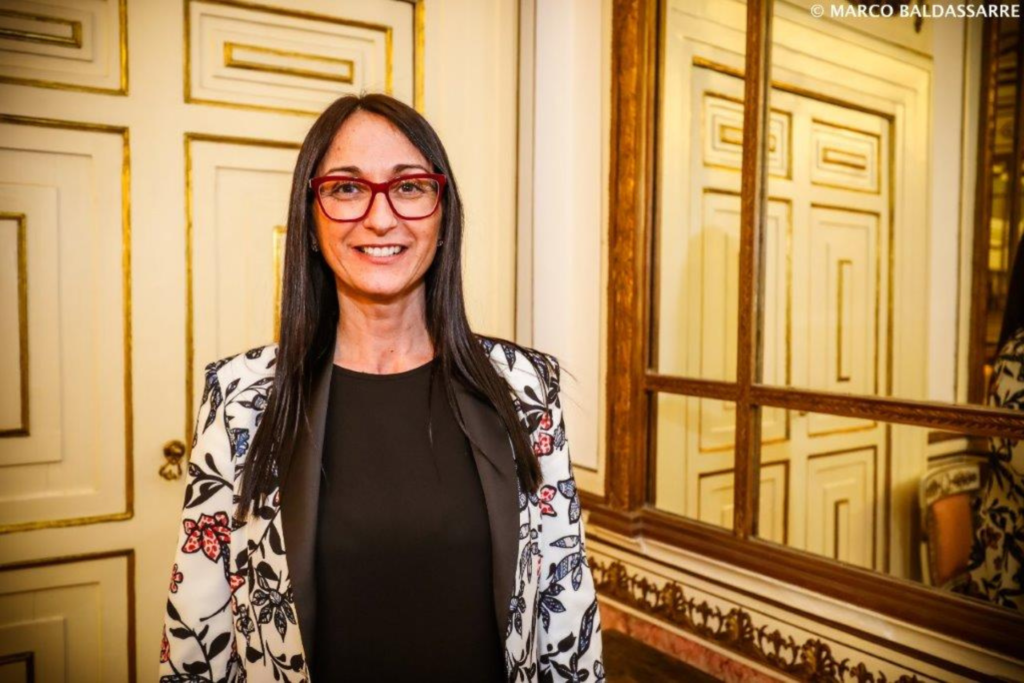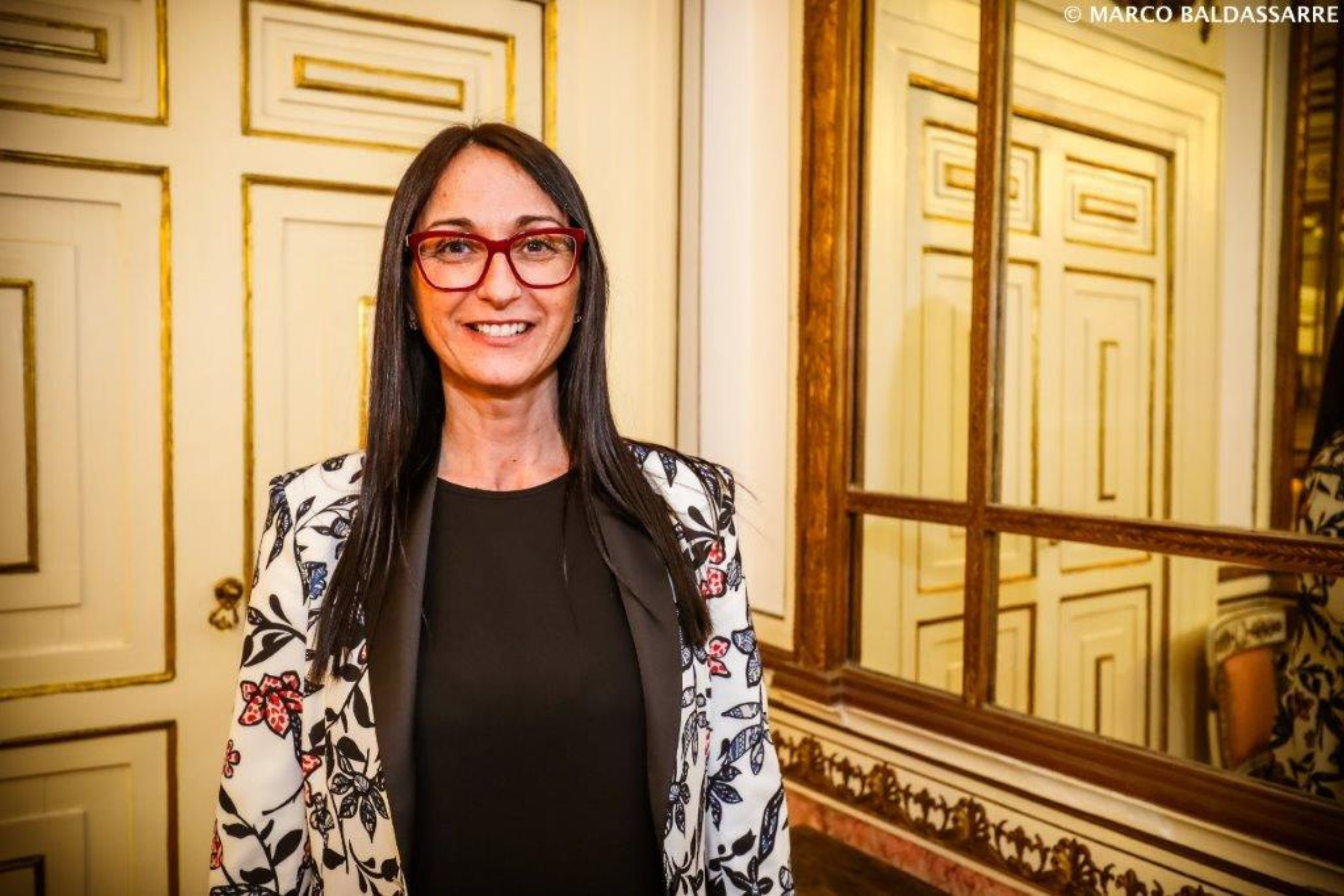Captain Kelly Gordon – Determined To Make a Difference!
Captain Kelly Gordon has been featured in many yachting publications and most recently, and impressively, Business Insider. Hailing from a small farm in Indiana US, she navigated her way from Chemistry professor at a junior college to yacht Captain, which has become her true vocation. She is one of the most positive and inspiring figures in the yachting world, determined to influence positive changes simply by doing what she loves best and setting a true example.
Could you tell us a little about where you’re from, and how you started in yachting?
Ha! The way I grew up was the FURTHEST from anything yachting! I grew up in a little town right smack in Middle America on a small farm. The largest body of water that I knew was the little lake that we would go to during the summer months where my Grandma had a tiny cottage. I have always loved the water, been a swimmer, and loved our little 16′ fish and ski that we had growing up as kids, but that was THE extent of my boat knowledge!
I quit high school when I was 15 to run the farm (where I’m from kids are meant to at that age). I quickly realized and I was determined that I was going to need to make a living another way. I had always wanted to be a veterinarian, so I decided to go to college and obtain my BS in Chemistry in order to apply to vet school. I acquired some welding credits along the way and a little before my chemistry studies, so I utilized that skill to make some extra money during my studies. I also working at the local veterinary clinic to improve my chances of getting into vet school. The first time I applied, I got accepted, that’s quite the feat!
But, young and scared of moving away from home and all that was familiar, and a fear of failure, I chose to quit on my dream. Well, it made perfect sense in my 22-year-old brain to move far away (I thought I could get away from my own disappointment). Little did I know, you are always with yourself wherever you go! So, away I went, to North Carolina! I got my MS in Chemistry and found the ocean and really big boats! Little did I know, those were yachts and this is where it all began! Specifically, I was invited to a party on board, I was intrigued, and remarked that I could drive this thing, I didn’t even know bow from the stern!
Were you always determined to become a captain?
My journey to captain was not your typical one, by far! Again, I knew nothing about boats, but I was lucky. I was lucky to have found a mentor that recognized my drive, thirst for knowledge, grit, and determination. And, as I say I was lucky, I sit here and ask myself if it was all luck or it was preparation. I could go on and on about this, but truly, it is preparation. It is being prepared to jump on the opportunity as it arises and, it’s having your eyes wide open as to not miss an opportunity. So, this fella, whom I call my mentor, saw that I was determined, while I saw the opportunity. He took me under his wing and insisted that I spent time in every department of the vessel-the exterior, the interior, the engine room, and obviously the wheelhouse. I did shy away from the galley though and that probably for the best. It was during this time that I was spending in as many areas of the vessel, that my focus never wavered from becoming a captain. And, I did!! And, here I am! The absolute happiest I have ever been!
Who inspires you and why?
This was a tough question, but then again it wasn’t. Deep within my core, ingrained inspiration comes from my mom. She has instilled in us kids since we were little bitty that we can do or be anything that we want. Growing up with that, knowing that, and truly believing that is such an inspiration in itself. But, now, from day to day, it’s my colleagues and crew members that inspire me. You might think that it’s the captains that are running huge crews and Megayachts, but not always. Yes, they are huge inspirations. They set examples of how I want to grow as a captain and human being for me, but sometimes it’s my mate, my chef, my deck/stew, or my manager that inspires me.
Sometimes, it’s the young people that are looking to me for guidance and help wading through their life and career that inspires me. Sometimes, they have the simplest, yet best understanding. Their experience and lack of experience, wisdom, and lack of wisdom inspire me. Sometimes, it’s my manager getting a little testy when he hears someone else might want to hire me that inspires me or when he sits in a meeting with me when I am exhausted and asks me if I’m ok, that inspires me. They inspire me to keep growing, to keep chasing my dreams, to keep helping others, and to keep working to be the best damn captain, sister, daughter, aunt, friend, and human being that I possibly can be.
What motivates you?
I’d have to say myself! I can’t hide this! I am a bit of a perfectionist and competitive. But, I have worked to get this to a healthy level, too! Results also motivate me, tangibles, data, motivate me. Remember, I was a chemist before I was a captain, so if I can attach a result or interpretation of some sort of data to it, it motivates me. Those are the extrinsic motivators though. Perhaps, more important are the intrinsic motivators. This would be growth and growth on many levels-personal, career, emotional, intellectual, etc. And, can I say that I am happy with my performance of the day, the week, the month, etc. If I can, that keeps me going. That motivates me. And, my crew are probably my biggest motivators. They look to me for guidance and to help them grow. That is a HUGE motivator.
As a female captain, have there been any significant barriers in your career?
There definitely has! It’s the obvious elephant in the room – the fact that I am a woman. But, I think this is only as much of a barrier as you allow it to be. Actually, this could tie back to the last question as it’s actually a motivator for me. When someone doubts me it just adds fuel to my fire. It gives me the spark that I need to succeed, to keep pushing, and it makes me determined to prove to them I can. I was such a tough little girl and this mindset hasn’t left…my mom might describe it in other ways! Haha. But, really, it’s all in how you perceive your barriers and react to them. For me, they just helped me become all that much more determined!
How do you advocate for diversity, equity, and inclusion on board?
Well, I speak out and I speak out to whoever will listen, but I think it’s important to do so in a way that’s tasteful and not off-putting. Heck, the boat I am running now screams diversity! It is a minority (African American) owned and managed, female ran (me), has a female deckhand that also doubles as a stew, and has interviewed a male steward just last week! So, I think we advocate for diversity and inclusion by actually doing it! When it comes to equity, we are all equal on board my vessel and I love to share that approach with my colleagues. I have always told my crew that I never want to hear, “that’s not my job.” We are a team! My mate does the dishes at night for the girls after dinner service. I buss the tables when they are behind and put the toys away when I need to. We all share in each other’s responsibilities. That’s how I advocate for diversity, equity, and inclusion-we actually do it!
I’m sure there have been many career highlights! Could you tell us one that stands out?
This just might be the toughest question that you have asked me! I can’t say that there is ONE particular highlight that stands out to me because I find myself having several, small highlights along the way. Actually, they’re big highlights to me and they range from navigational challenges to hearing that I have made an impact in someone else’s life. When I was a baby captain, it was my top to bottom East coast transit. Then it was my crossing and entrance into Cuba when that was allowed, then it was learning to successfully navigate The Bahamas. After that, it was navigating the river system from top to bottom from Stuart, FL to Milwaukee, WI, a 2000 mile journey in some of the toughest rivers. But, I’d have to say the biggest highlights are when I get messages on Facebook, LinkedIn, or Instagram saying that I have helped them pursue a goal that they have given up on or that I have inspired them to chase their dreams.
The one that is most recent and keeps creeping back into my mind is when I received a message from a young man on LinkedIn that had listened to one of my interviews. He said, “You actually made me feel like I have been working with you just through listening to the video as I could understand and relate to you. You are amazing, incredible, and unique, but most importantly you are unaware that you are a true inspiration and in my book, a legend. Keep being the amazing, legendary woman and captain that you are.” THAT! That speaks volumes to me. I debated even sharing that comment with you, but that is huge. Moments like this, when I have made a difference in someone’s life, that is a career highlight! But, maybe the biggest highlight of my career is that I am actually doing it, I can actually say that I am a superyacht captain!
How important is personal and professional growth to you?
OMG!!!!! I am so glad you asked and have been waiting on this question from someone! Can we dedicate an entire article to this PLEASE!!!!!! I think you can tell just two sentences in that I am HUGE on this! So, I have a list taped to my wall and the foot of my bed that lists the courses that I need to take in order to advance my license. It is the first thing that I see every morning when I wake up. I put it there intentionally. And, if it’s not a course that I am taking, I read the manuals on the boat when I can. I’ve got to give huge kudos to one of the most brilliant engineers that I know for insisting that I read my manuals, Kevin Dettloff.
Personal growth-that never stops and that is probably more important than professional growth. I am the absolute happiest I have ever been in life and it has taken me 40 years to get here and a load of work and dedication. It is constant work, but it is work that I really enjoy. Yes, sometimes I encounter challenges and setbacks and they are frustrating/depressing/discouraging, but I have learned to adopt a mindset that allows me to look forward to the growth that will come after I work through that particular challenge. The conversations that we have with ourselves and the way that we treat ourselves are probably more important than any other.
What advice would you give to the next generation of female captains?
Just do it! Don’t let fear get in your way. Ask for help. Don’t hesitate in reaching out to those, man or woman, who have become successful in the industry. Ask lots of questions. Spend as much time on different boats as you can. Take every opportunity that you can and even if it doesn’t turn out as you had hoped you are certain to learn something valuable from it. Find a mentor – you will need it on the days that you feel like you have been kicked in the gut, trust me, it will happen and you will need that outside support. Support the other women in the industry because there are only a few of us at this point. And, trust your skills, know what you know. I dealt with imposter syndrome for a while and I had to have a TON of conversations with myself to overcome that. Don’t doubt your choices and abilities. Lastly, never stop learning!

Captain Kelly’s enthusiasm and determination are palpable, it’s no wonder she is so influential in the yachting space. She is a testament to the fact that if you follow your passion, all your dreams can come true! A true inspiration, thanks Kelly!




















